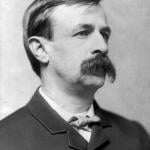The late Allan Bloom points out in his interpretive essay on Plato’s Republic that Socrates’ attack on poets is qualified by the fact that he ends the Republic with a myth, the reincarnational myth of Er. Socrates banishes the poets, but offers a return if the poets will submit themselves to the disciplines of philosophy, especially to the crucial belief in the immortality of the soul. Here are a couple of quotations:
?The poets are the authentic, the only, teachers about the gods. The great mystery is how they find out about them, how they are able to present them to men. Socratic poetry also must tell about the gods and the afterlife. This does not constitute the difference between the old poetry and the new; the gods are the center, not to say the essence, of both. The real quarrel between Socrates and Homer concerns the way in which one finds out about the gods, or the view of the whole which causes a poet to represent the gods in one way rather than another. Socrates?Ecriticism of Homeric poetry is really a study of the principles of his theogony or theology, a study of the nature of the Homeric gods.?E
?Socrates banishes poetry once more, but this time offers it a return if it can learn to argue, to justify itself before the bar of philosophy. He points the way to Aristotle?s understanding of tragedy as a purgation of the passions of pity and fear rather than their satisfaction. Such tragedy would prepare a man to be reasonable and moderate after having purged those terrible passions; it would pay due attention to man?s necessary love of his own, but would temper it in such a way as to allow him some freedom from it. Thus tragedy would neither give way to these passions nor to deny their existence. It would then be an important part of the education of decent, unfanatic men. Poetry will return, but only after having learned to subordinate itself, to mitigate its unguided tendencies toward indulgences and fanaticism. When the poets depict the gods they must no longer look to laughter and pity but to the ideas.?E
He points out that the myth of Er is a play off of Odysseus’ journey to the underworld in Odyssey , Book 11, but subversive play. The climax of Odysseus’ journey is an encounter with an embittered Achilles, who now realizes that all his heroism has come to nothing. Socrates shows Er going through similar encounters as Odysseus, but Achilles is completely absent, a shadowy absent presence that reinforces Socrates’ point about the justice of the rewards of the afterlife.










